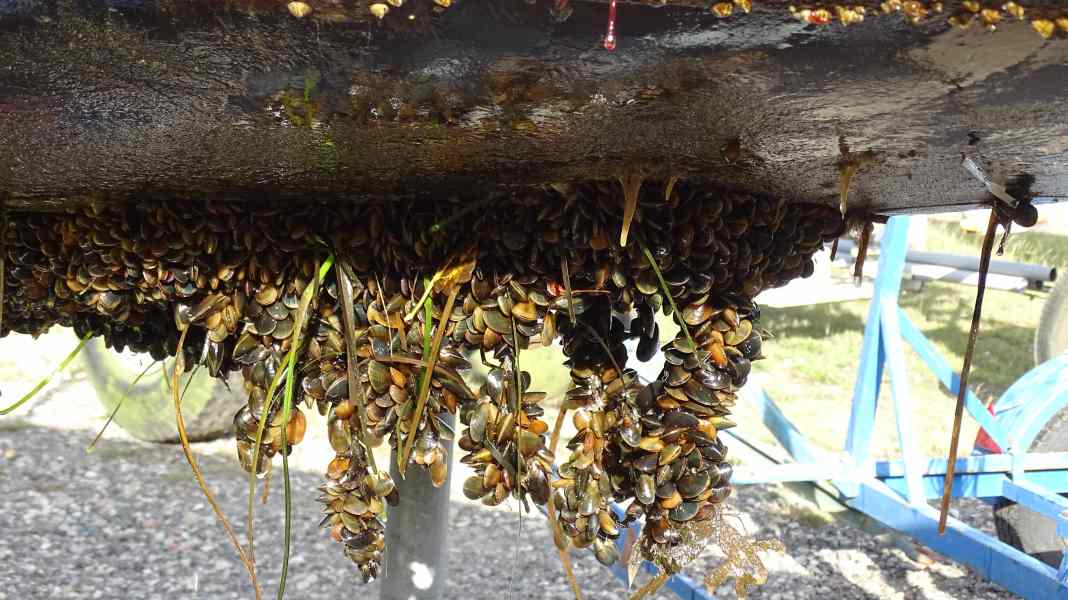
The e-learning course is practice-orientated and is aimed specifically at recreational shipping. It is presented by the Federal Maritime and Hydrographic Agency (BSH) and the expert network of the Federal Ministry for Digital and Transport Affairs (BMDV). Anyone who completes the course - the knowledge acquired is tested in between - receives a certificate.
BSH President Helge Heegewaldt:
With simple means, everyone can make a big contribution to protecting our oceans. We all benefit from this."
The free course is now available. The link and information on registration can be found at the end of the article.
Fouling pressure in German waters sometimes higher than in the tropics
Studies by the BSH and the Federal Institute of Hydrology (BfG) show that the fouling pressure in German summer months is sometimes higher than in tropical waters. Niche areas such as propellers, shafts and ship hulls are particularly susceptible.
This fouling increases the weight and water resistance, which increases fuel consumption and CO₂ emissions. In extreme cases, it can even restrict the manoeuvrability of boats. "By carefully choosing a suitable, sustainable boat coating, you can protect the environment and even your own wallet," says Dr Nicole Heibeck from the BSH.
How to optimally protect your own boat
In five informative chapters, Bernd Daehne, antifouling expert at Dr Brill + Partner, Dr Sascha Setzer from the Federal Environment Agency (UBA) and Dr Nicole Heibeck explain biofouling. Participants will also receive practical tips on how best to protect their own pleasure craft.
The approximately 45-minute online course provides an introduction to various approaches to fouling management and shows how sustainability and environmental protection can be promoted in maritime practice. The focus is on four central topics:
Firstly, measures to Fouling management The new system also includes a number of new features, such as the prompt removal of boats after use or the use of hard coatings that can be cleaned regularly.
The course also sheds light on Technological innovationsincluding more environmentally friendly alternatives such as non-stick and foul-release coatings, ultrasonic and UV technologies and mobile cleaning systems.
What lies behind the biofouling logbook and roadmap
Another focus is on Sustainability strategiesincluding the introduction of the biofouling logbook, a guideline from the International Maritime Organisation (IMO) and the use of a biofouling roadmap.
The course is rounded off with information on environmentally friendly behavioursuch as observing the principle of "clean before you leave" - in other words, clean the boat before you set off. Or the recommendation to travel through waters with varying salt content in order to reduce fouling.
The e-learning course was developed with partners such as the UBA, the German Sailing Association (DSV) and the German Motor Yacht Association (DMYV). It is now available at Biofouling management of pleasure craft - hygienecompass can be called up. All you need to do is register with your name and a valid e-mail address.
It is complemented by the recently published guidelines for the biofouling management of recreational craft in the Baltic Sea and the North-East Atlantic (Biofouling-Management-Guidance-for-recreational-craft.pdf).
The guide summarises biofouling management strategies and provides tools and methods to help find the right antifouling system, keep the boat free of fouling during the season, create an individual plan and document and evaluate the measures taken.

